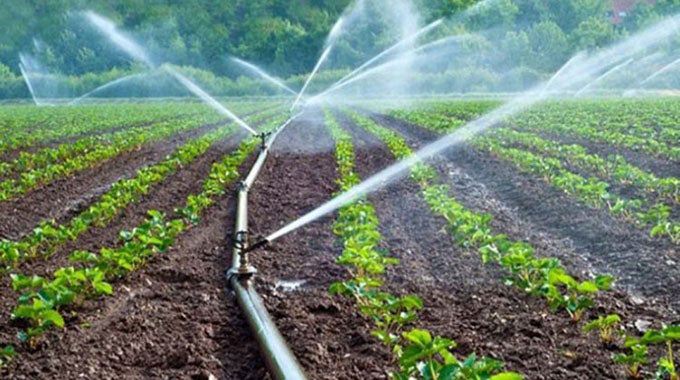‘It’s 100 percent for Biri Irrigation Scheme!’

Edgar Vhera Agriculture Specialist Writer
BIRI Irrigation Scheme of Mberengwa looks set to sustain the positive vibe set by its recent commissioning following successful rehabilitation works by the smallholder irrigation revitalisation programme (SIRP) with a 100 percent increase in wheat production from last year’s 200 to 396 tonnes this year.
Lands, Agriculture, Fisheries, Water and Rural Development Minister Dr Anxious Masuka last Saturday commissioned the 117-hectare scheme that was rehabilitated at a cost of US$225 538.
The irrigation scheme boasts a membership of 273 with men accounting for the bigger proportion of 158 while 115 are women. Each household has a 0, 5ha portion of land.
Biri Irrigation Scheme chairperson Mr Tinomuvonga Hove said before SIRP’s intervention, their production potential was severely compromised by lack of adequate water due to leakages and ineffective pumping power.
“Last year we planted 66ha of wheat and achieved an average of three tonnes per hectare amounting to 200 tonnes in total. This year we are anticipating a 100 percent increase in production with an average of six tonnes per hectare and 396 tonnes in total,” said Mr Hove.
Mr Hove praised SIRP saying it came at the right time and changed the downward trajectory their livelihoods were taking.
“Before the intervention of SIRP, we were experiencing the challenge of water shortages. Farmers did not understand the block system, so it was an ‘each man for himself’ affair characterised by very low yields and very high post-harvest losses.
“SIRP bought and installed three pumps and protected our pipeline from damage. They also increased the pumping capacity of the canals and gave us syphons to assist in irrigation before training us on how to take farming as a business,” the scheme’s boss said.
Mr Hove said the group had opened a business bank account where commitment fees are deposited for use when bad things such as loss of electricity cables and transformer through theft befell the scheme.
“Now we get shares as farmers, pay our utilities on time and get inputs from Government and plant on time,” he said.
In a statement, SIRP said they had installed two new pumps and constructed gabions to protect the pipes, as well as canals and drains, after realising that existing canal irrigation system was not performing efficiently due to old infrastructure.
The scheme had been experiencing massive shortages of irrigation water caused by losses from worn-out canals and damage to the only conveyance pipeline that runs from the dam to the field as well as poor abstraction of water due to damaged pump units, the statement added.
SIRP also confirmed training farmers on good agricultural practices (GAP), farming as a business, operations, maintenance and governance, gender, nutrition, building and holding a vocational youth training.
SIRP is a seven-year programme funded by International Fund for Agricultural Development (IFAD), OPEC Fund for International Development (OFID) and the Government of Zimbabwe, which contributes to the resilience of smallholder farming communities in Zimbabwe.
Its goal is to reduce vulnerability of smallholder farmers due to food and nutrition insecurity, climate change effects and economic shocks.








Comments